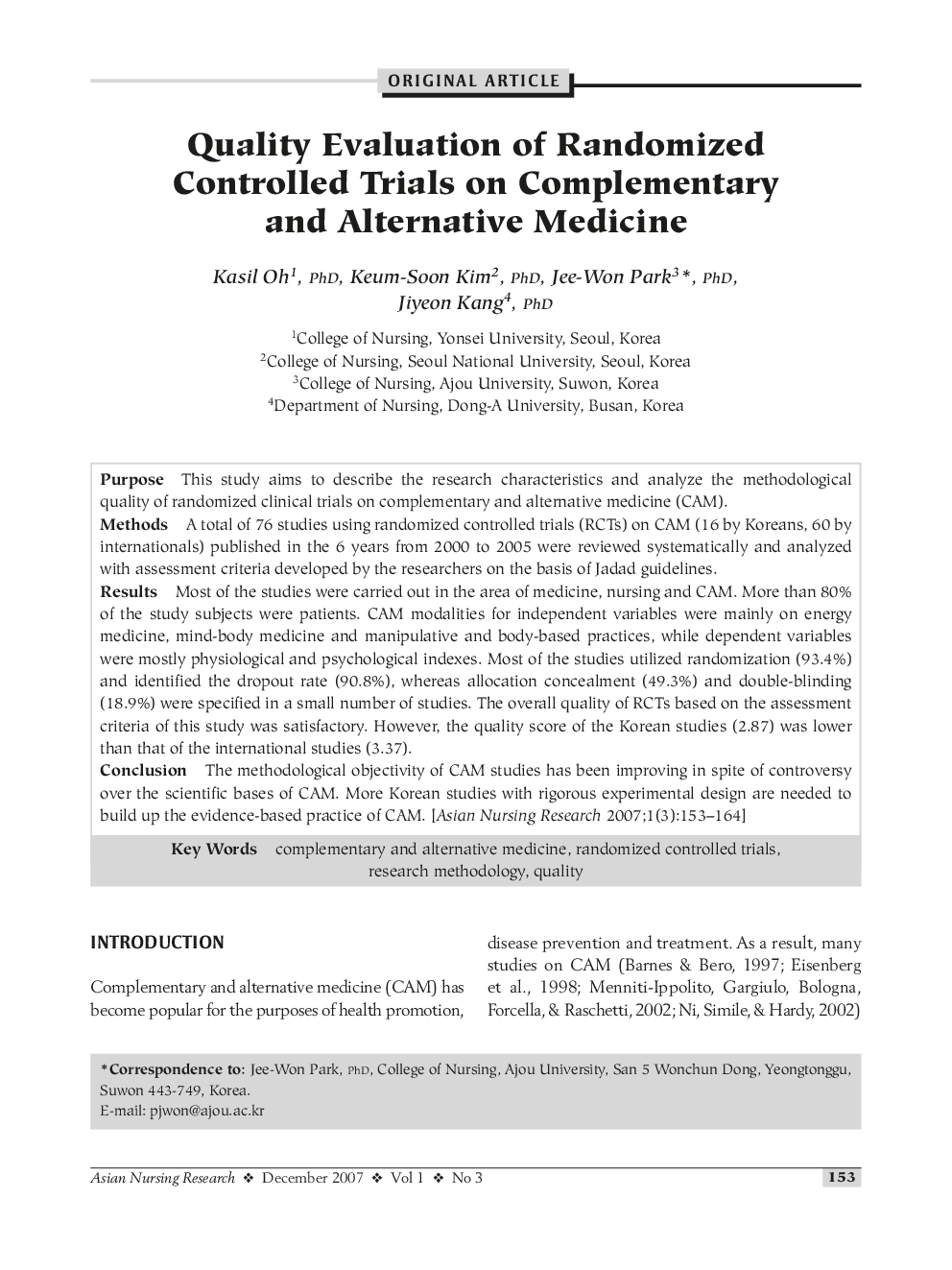| Article ID | Journal | Published Year | Pages | File Type |
|---|---|---|---|---|
| 2645355 | Asian Nursing Research | 2007 | 12 Pages |
PurposeThis study aims to describe the research characteristics and analyze the methodological quality of randomized clinical trials on complementary and alternative medicine (CAM).MethodsA total of 76 studies using randomized controlled trials (RCTs) on CAM (16 by Koreans, 60 by internationals) published in the 6 years from 2000 to 2005 were reviewed systematically and analyzed with assessment criteria developed by the researchers on the basis of Jadad guidelines.ResultsMost of the studies were carried out in the area of medicine, nursing and CAM. More than 80% of the study subjects were patients. CAM modalities for independent variables were mainly on energy medicine, mind-body medicine and manipulative and body-based practices, while dependent variables were mostly physiological and psychological indexes. Most of the studies utilized randomization (93.4%) and identified the dropout rate (90.8%), whereas allocation concealment (49.3%) and double-blinding (18.9%) were specified in a small number of studies. The overall quality of RCTs based on the assessment criteria of this study was satisfactory. However, the quality score of the Korean studies (2.87) was lower than that of the international studies (3.37).ConclusionThe methodological objectivity of CAM studies has been improving in spite of controversy over the scientific bases of CAM. More Korean studies with rigorous experimental design are needed to build up the evidence-based practice of CAM.
